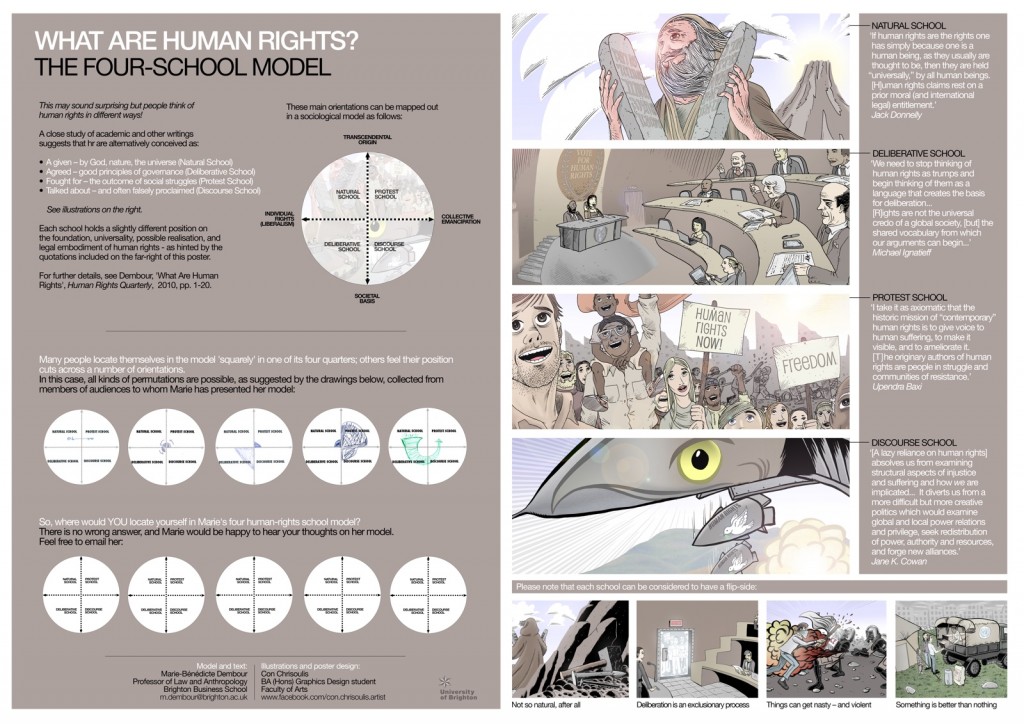What are human rights?
Professor Marie-Bénédicte Dembour’s groundbreaking work challenges the human rights orthodoxy by proposing that there are four schools of thought as follows:
- ‘Natural scholars’ who conceive of human rights as a given
- ‘Deliberative scholars’ who think of human rights as agreed upon
- ‘Protest scholars’ who believe human rights are fought for
- ‘Discourse scholars’ who conceive of human rights as talked about
Marie’s model allows differing positions on the foundation, universality, possible realisation and legal embodiment of human rights to be explored. Through mapping the different schools, she gives greater clarity to debate within the human rights field.
Already widely cited, the model was the topmost downloaded article of the leading journal Human Rights Quarterly shortly after it was published there in 2010.
The model was the subject of the prestigious Torkel Opashl Memorial Lecture given at the University of Oslo in 2009 and keynote addresses in 2011 at both the symposium organised by the Dutch branch of Amnesty International to celebrate its fiftieth anniversary and the Nordic Educational Research Association (NERA) conference on rights and education in Finland.
In addition, Professor Dembour lectured on her model at the Institut Universitaire Kurt Bösch in Switzerland and was invited by Clingendeal, the Netherlands Institute of International Relations, to present her findings in courses developed for diplomats from the Arab region in 2013.
By introducing new, theoretical mapping of human rights scholarship, Dembour has managed to reframe approaches and debate within the field.
